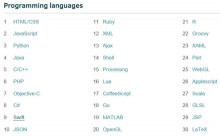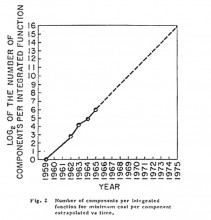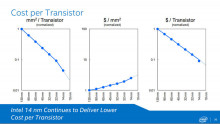The most popular technologies at student hackathons
Devpost, which has just changed its name from ChallengePost, has identified the main technologies used in student hackathons. Some are more surprising than others. The top products include HTML/CSS and JavaScript, jQuery, Node.js, MongoDB, Venmo and PayPal, Google Maps, Android Studio, Microsoft Azure and Sublime Text.
Facebook beat Twitter as the top Social API, while Spotify came ahead of Echo Nest as the main Music API. Unity was the top Game Engine.












































































